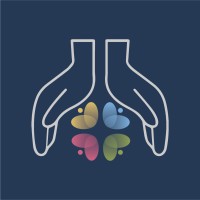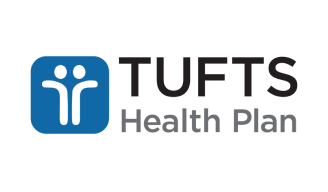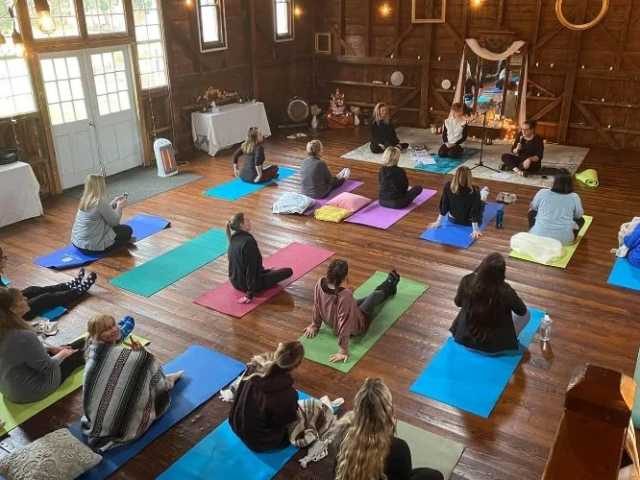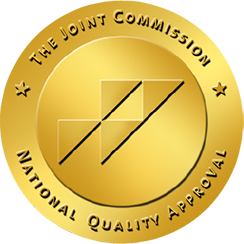
Cohasset, Massachusetts, United States
East-Coast Recovery
Verified
Verified
This provider’s information has been quality-checked by Recovery.com’s Research Team for accuracy and completeness, including center verification through appropriate third-party organizations.
Joint Commission Accredited
The Joint Commission accreditation is a voluntary, objective process that evaluates and accredits healthcare organizations (like treatment centers) based on performance standards designed to improve quality and safety for patients. To be accredited means the treatment center has been found to meet the Commission's standards for quality and safety in patient care.
Provider's Policy
The experts at East Coast Recovery are happy to verify your insurance for you - at no cost.We accept most major Insurance which can cover the cost of treatment.
Estimated Cash Pay Rate
The cost listed here ($17,500) is an estimate of the cash pay price. Center pricing can vary based on program and length of stay. Contact the center for more information. Recovery.com strives for price transparency so you can make an informed decision.
Highlights from the Center
Highlights
These highlights are provided by and paid for by the center.
Therapeutic Location
Customized Treatment Plans
Trauma-Informed Care
Private Rooms Available
About East-Coast Recovery
East-Coast Recovery provides residential and outpatient treatment for addiction and dual-diagnoses. Their outpatient programs include residential care, intensive outpatient programs (IOP) and partial hospitalization programs (PHP), or day treatment. They use trauma-informed and personalized care to help each client find and maintain sobriety. East-Coast Recovery offers medication-assisted treatment as needed, and an aftercare program for alumni. Each program begins with a thorough medical assessment and learning clients’ medical histories.
Comprehensive Intensive Outpatient Program
In East-Coast Recovery’s IOP program, clients attend treatment for 3-4 days a week. East-Coast Recovery provides cognitive behavioral therapy (CBT), dialectical behavioral therapy (DBT), trauma therapy, interpersonal therapy, and experiential therapies for clients in the program. Their IOP treatment also teaches life skills, ways to find and keep a good job, social skills and relationship skills, and addresses the cause(s) of addiction. Their experiential therapies include yoga, guided meditation, breathwork, and adventure therapy.
Partial Hospitalization Program
East-Coast Recovery’s PHP (or day treatment) program welcomes clients for 5 days a week. Therapies like CBT and DBT address addiction and mental health conditions, and help clients identify what might have caused their addiction. East-Coast Recovery leads educational sessions for clients and their families, helping them learn more about addiction, recovery, and managing triggers. East-Coast Recovery also provides on-site AA (Alcoholics Anonymous) meetings for clients in residential treatment, IOP, PHP, or aftercare program.
Accessible, Ongoing Treatment Opportunities
East-Coast Recovery provides pick-up services for clients who need a ride to their center. They invite family members into treatment too, with family counseling sessions available for clients and their loved ones. After treatment, clients can regularly meet with other alumni and receive further counseling from therapists at East-Coast Recovery.
Read More

Insurance Accepted
Provider's Policy:The experts at East Coast Recovery are happy to verify your insurance for you - at no cost.We accept most major Insurance which can cover the cost of treatment.
Multiple Treatment Options
East-Coast Recovery provides multiple levels of treatment—residential treatment, an IOP program and a more intensive PHP program, plus dual-diagnosis and MAT treatment within each option. Clients can find family care and aftercare services in each treatment program as well. Day and evening times allow clients to attend treatment while still meeting their professional and personal obligations.
Trauma-Informed Care
East-Coast Recovery offers trauma-informed therapy in all levels of care. They seek to provide a safe environment for clients to share information as they feel able, without rush or pressure. Evidence-based and experiential therapies work together to offer clients a comprehensive recovery experience.
Holistic, Dual-Diagnosis Recovery
Understanding addiction and mental health conditions often occur at the same time, East-Coast Recovery offers simultaneous treatment for both. Their dual-diagnosis program addresses addiction and mental health conditions like depression, anxiety, and bipolar disorder. Wellness opportunities like yoga and guided meditation can help clients heal their mind, body, and spirit all at once.
Family Support And Aftercare
East-Coast Recovery provides family support for clients’ loved ones, knowing they’re important to their recovery. Whether chosen or related family, East-Coast Recovery welcomes them to family counseling sessions and psychoeducation classes. After treatment, clients can continue with therapy at East-Coast Recovery and join alumni support systems in the area.

Center Overview
Estimated Cash Pay Rate
Executives
Executive treatment programs typically directly support the needs of people who manage businesses and may provide flexible schedules and office space to allow work during treatment.
Men and Women
Men and women attend treatment for addiction in a co-ed setting, going to therapy groups together to share experiences, struggles, and successes.
Professionals
Busy, high-ranking professionals get the personalized treatment they need with greater accommodations for work, privacy, and outside communication.

Treatment Focus
This center treats primary substance use disorders and co-occurring mental health conditions. Your treatment plan addresses each condition at once with personalized, compassionate care for comprehensive healing.
Treatment
Specializations
Alcohol
Using alcohol as a coping mechanism, or drinking excessively throughout the week, signals an alcohol use disorder.
Detox
Detox fully and safely removes toxic substances from the body, allowing the next steps in treatment to begin with a clean slate.
Benzodiazepines
Benzodiazepines are prescribed to treat anxiety and sleep issues. They are highly habit forming, and their abuse can cause mood changes and poor judgement.
Cocaine
Cocaine is a stimulant with euphoric effects. Agitation, muscle ticks, psychosis, and heart issues are common symptoms of cocaine abuse.
Drug Addiction
Drug addiction is the excessive and repetitive use of substances, despite harmful consequences to a person's life, health, and relationships.
Intensive Outpatient Program
In an IOP, patients live at home or a sober living, but attend treatment typically 9-15 hours a week. Most programs include talk therapy, support groups, and other methods.
Opioids
Opioids produce pain-relief and euphoria, which can lead to addiction. This class of drugs includes prescribed medication and the illegal drug heroin.
Outpatient
During outpatient rehab, patients attend a structured treatment program while continuing to live at home.
Treatment Services
Day Treatment
In a PHP, patients live at home but follow an intensive schedule of treatment. Most programs require you to be on-site for about 40 hours per week.
Intensive Outpatient Program
In an IOP, patients live at home or a sober living, but attend treatment typically 9-15 hours a week. Most programs include talk therapy, support groups, and other methods.
Outpatient
During outpatient rehab, patients attend a structured treatment program while continuing to live at home.
Residential
In a residential rehab program, patients live onsite, with access to daily treatment and 24-hour care. An average stay is 30-90 days.
Sober Living
These structured living environments help people transition out of rehab. Residents have more freedom than they do during rehab, but still follow certain rules.
Approaches
Evidence-Based
A combination of scientifically rooted therapies and treatments make up evidence-based care, defined by their measured and proven results.
Individual Treatment
Individual care meets the needs of each patient, using personalized treatment to provide them the most relevant care and greatest chance of success.
Twelve Step
Incorporating spirituality, community, and responsibility, 12-Step philosophies prioritize the guidance of a Higher Power and a continuation of 12-Step practices.
Therapies
1-on-1 Counseling
Patient and therapist meet 1-on-1 to work through difficult emotions and behavioral challenges in a personal, private setting.
Meditation & Mindfulness
A practiced state of mind that brings patients to the present. It allows them to become fully aware of themselves, their feelings, and the present moment.
Play Therapy
This approach is commonly used with children. It incorporates elements of play and self-expression, like boardgames, finger painting, dolls, and blocks.
Adventure Therapy
This experiential approach uses the physical and emotional challenges of outdoor activities as tools for personal growth.
Animal Therapy
Animals can inspire trust and self-worth. In this experiential therapy, guided interactions are used to improve social skills and emotion regulation.
Art Therapy
Visual art invites patients to examine the emotions within their work, focusing on the process of creativity and its gentle therapeutic power.
Experiential Therapy
With this approach, patients heal by doing. Therapists help patients process difficult emotions to speak, using guided activities like art or dance.
Expressive Arts
Creative processes like art, writing, or dance use inner creative desires to help boost confidence, emotional growth, and initiate change.
Eye Movement Therapy (EMDR)
Lateral, guided eye movements help reduce the emotional reactions of retelling and reprocessing trauma, allowing intense feelings to dissipate.
Conditions We Treat
Personality Disorders
Personality disorders destabilize the way a person thinks, feels, and behaves. If untreated, they can undermine relationships and lead to severe distress.
ADHD, ADD
ADHD is a common mental health condition caused by dopamine imbalance. Common symptoms include inattention, hyperactivitiy, and impulsivity.
Anxiety
Anxiety is a common mental health condition that can include excessive worry, panic attacks, physical tension, and increased blood pressure.
Bipolar
This mental health condition is characterized by extreme mood swings between depression, mania, and remission.
Depression
Symptoms of depression may include fatigue, a sense of numbness, and loss of interest in activities. This condition can range from mild to severe.
Post Traumatic Stress Disorder
PTSD is a long-term mental health issue caused by a disturbing event or events. Symptoms include anxiety, dissociation, flashbacks, and intrusive thoughts.
Trauma
Some traumatic events are so disturbing that they cause long-term mental health problems. Those ongoing issues can also be referred to as "trauma."
Substances We Treat
Alcohol
Using alcohol as a coping mechanism, or drinking excessively throughout the week, signals an alcohol use disorder.
Benzodiazepines
Benzodiazepines are prescribed to treat anxiety and sleep issues. They are highly habit forming, and their abuse can cause mood changes and poor judgement.
Co-Occurring Disorders
A person with multiple mental health diagnoses, such as addiction and depression, has co-occurring disorders also called dual diagnosis.
Cocaine
Cocaine is a stimulant with euphoric effects. Agitation, muscle ticks, psychosis, and heart issues are common symptoms of cocaine abuse.
Drug Addiction
Drug addiction is the excessive and repetitive use of substances, despite harmful consequences to a person's life, health, and relationships.
Heroin
Heroin is a highly addictive and illegal opioid. It can cause insomnia, collapsed veins, heart issues, and additional mental health issues.
Methamphetamine
Methamphetamine, or meth, increases energy, agitation, and paranoia. Long-term use can result in severe physical and mental health issues.
Opioids
Opioids produce pain-relief and euphoria, which can lead to addiction. This class of drugs includes prescribed medication and the illegal drug heroin.
Aftercare
Experience
Personal Amenities
Amenities
Off-Site Activities
Off-Site Amenities
Professional Staff

Tom Meade
Owner

Brian Galvin
Owner

Allison Gates
Primary Therapist
LMHC

Megan Berube
Clinical Director
LICSW
View More Team Members
Learn more about East-Coast Recovery
Testimonial
East Coast Recovery is a special place. I came to ECR at the lowest point in my life. The staff and this program showed unconditional love and compassion.
Jennifer
We love hearing about your treatment experience
Help individuals and families seeking treatment by sharing your first-hand experience with this treatment provider. Review Guidelines.








































